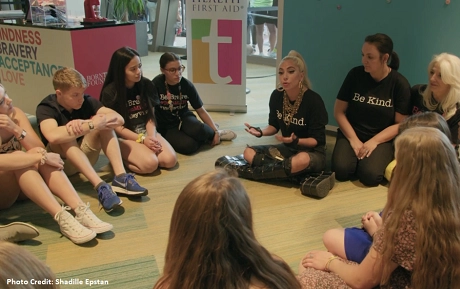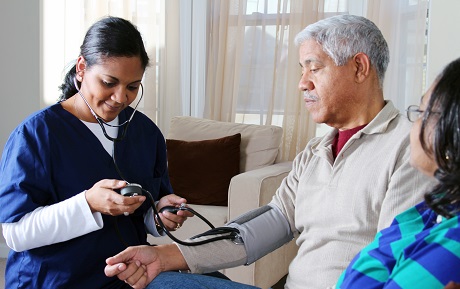Our Work with Foundations
Our Role
We are more than just a nonprofit. We are a thought leader with a 50-year track record of advancing behavioral health care. A vehicle for creating long-term, sustainable impact. And a convener of 3,326 behavioral health care providers who are changing lives and strengthening communities. With a national presence, growing network and commanding voice on Capitol Hill, we are closing the gap of unmet need for addiction and mental health care services by spearheading life-saving legislation, eliminating health disparities, fighting for parity, nurturing integrated care and increasing access to affordable care.
Throughout the year, we work with foundations to deliver unique solutions to pressing social challenges, such as access to quality mental health care, the rising rate of suicide and the opioid crisis. From offering trauma-informed training in schools and screening youth for substance use, to delivering mental health training and advancing state-level, value-based payment and care, we are putting foundations in the driver’s seat of change.
Our Impact
With a national presence, growing network and commanding voice on Capitol Hill, we are a conduit for creating long-term, sustainable impact. Throughout the year, we work with foundations to deliver unique solutions to pressing social challenges, such as access to quality mental health care, the rising rate of suicide and the opioid crisis. From offering trauma-informed training in schools and screening youth for substance use, to delivering mental health training and advancing state-level value-based payment and care, we are putting foundations in the driver’s seat of change. And it’s working:

Together with the Mat-Su Health Foundation, we are providing consultation on trauma-informed practices to 15 schools in Alaska’s Matanuska-Susitna Borough school district.
We are advancing a shared trauma-sensitive philosophy, language and belief within the school system to promote the adoption of a fundamental organizational culture change.

Together with the Conrad N. Hilton Foundation, we gave primary care providers the tools they need to employ standardized and routine screenings for adolescent substance abuse.
We introduced Facilitating Change for Excellence in SBIRT (Screening, Brief Intervention, and Referral to Treatment), a four-year project that is developing an evidence-based and consensus-driven SBIRT model to help providers address adolescent substance use. Across 27 sites in California, 4,637 youth have already been screened.

Together with the Born This Way Foundation, we introduced teen Mental Health First Aid, a program that teaches teens how to help their friends with mental health or substance use issues.
We are piloting a new component of our Mental Health First Aid curriculum to provide students in grades 10-12 with the resources and tools needed to address peer-related mental health problems or crises, such as suicide.

Together with the Robert Wood Johnson Foundation, we are teaching primary care and behavioral health state associations how to advance value-based payment and care.
We launched the Delta Center for a Thriving Safety Net, a national initiative that builds capacity of state associations to advance state-level, value-based payment and care through advocacy, technical assistance and collaboration.
Our Invitation
Since 1969, we have been serving on the frontlines of community behavioral health, fighting to ensure all Americans living with mental illnesses and addictions have access to comprehensive, high-quality care that affords every opportunity for recovery. Whether we are uniting organizations to advocate for critical policy, connecting them with public education opportunities or enabling them to improve service delivery, we are working with our foundation partners to improve health outcomes across the country. Interested in collaborating for positive impact? You can:
- Sponsor our impact work: Help us champion holistic improvements in behavioral health care
- Partner for public education: Support our knowledge-sharing efforts, such as Mental Health First Aid
- Leverage our network: Engage our providers and subject matter experts for thought leadership
PARTNERSHIP OPPORTUNITIES
Throughout the year, we will present partnership opportunities that will support our efforts to raise the profile of mental illness and addiction, as well as the need for support and treatment. Current opportunities include:
- Community Solutions – Mental Health First Aid (MHFA) and Trauma-Informed, Resilience-Oriented Care (TI-ROC): Given the alarming rising rates of youth mental health challenges, exacerbated further during the COVID-19 pandemic, the National Council has placed a greater priority on bringing mental health education and trauma-related resources into school settings. The National Council has developed a model – a learning glidepath for schools across the country – to proactively educate, improve skills, and build resiliency in young people and create trauma-aware, -responsive, and -sensitive ecosystems. We are seeking foundation partners to help us support schools across the country in becoming environments of mental wellness and resiliency.
Contact Us

Resources
Accountability
In support of disclosure requirements of the Internal Revenue Service and an effort to provide financial transparency, The National Council is sharing our most recently filed annual tax information (IRS Form 990).
